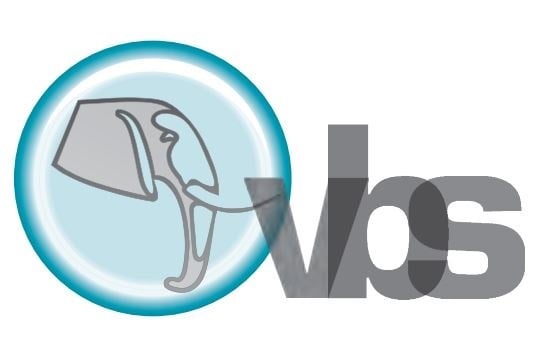
The People’s Tribunal on Economic Crime has the potential to reshape the trajectory of how we conceptualise economic crime and the role of the private sector, write Khuraisha Patel and Nombuso Mathibela
South Africans have been staggering through multiple exposés on private and public sector corruption over the past few months alone, be it allegations of looting of public funds by and through financial institutions detailed in the VBS Mutual Bank: The Great Bank Heist report or confessions of undisclosed meetings between former finance minister Nhlanhla Nene and the Guptas.
All this points to the importance of harnessing efforts for accountability in the face of impunity.
In the face of a failing criminal justice sector, we struggle to make sense of who is guilty or innocent and in so doing we come to believe people and organisations who themselves have captured the state and identify with their cause.
It’s time that we dump this case of Stockholm syndrome by ensuring the effectiveness of our public institutions.
In contrast, the first People’s Tribunal on Economic Crime provides an example of a civic mechanism to address impunity for economic crimes that should not be underestimated.
The tribunal recently delivered its final findings after hearing evidence from civil society, experts and whistle-blowers on economic crime and corruption in the South African arms trade over the past 40 years.
These findings and recommendations on apartheid-era sanctions busting and the 1999 Arms Deal are a powerful reminder that accountability is possible – if democratic institutions actively work to fulfil their mandate.
Among the objectives of the tribunal were the desire to “stimulate informed public debate and engagement in the continuities of corruption in the country and identify actors in the private and public sector who have committed or been complicit in acts of corruption or economic crime”.
READ: SA must improve the culture of compliance in the private sector
It also aimed to identify structural and systemic failures within institutions that have the legal duty to combat corruption.
In doing so, it illustrated how continued inertia regarding economic crimes created the conditions for these crimes to continue with impunity.
The findings acknowledged the historical patterns of corruption in finding that “state capture is to some extent also a result of the corrupt activities that had gone before it.
Absent the violation of UN sanctions and the corrupt Arms Procurement Package, the kind of state capture described in the evidence would probably not have occurred.
The examples of state capture mentioned here are the tip of the iceberg”.
Violation of UN sanctions refers to comprehensive evidence implicating global players such as foreign banks KBL Luxembourg and Kredietbank, and arms companies like Thales, Armscor and Ferrostaal in violating arms sanctions against apartheid South Africa and perpetrating economic crimes.
Thales and company resurface in evidence presented on the arms deal and the modus operandi of abuse of official position, and exploiting poor corporate accountability persists to the Denel saga in state capture.
Weaving the threefold narrative of exposing corporate criminality, the failure of state accountability institutions and the continuities between events of corruption, the tribunal made the following key recommendations:
A special unit be set up with the National Prosecuting Authority (NPA) to investigate and prosecute economic and related crimes committed by private and state actors that aided and abetted apartheid.
The special unit must complete its work within two years from its establishment and should be subject to semi-annual parliamentary oversight;
The NPA and police services must urgently investigate and prosecute transactions under the arms deal that were not lawfully made and that resulted in private gain.
READ: VBS:The NPA gets involved
The panel went to great lengths to emphasise that the Seriti commission’s investigation into allegations surrounding the arms deal did not preclude further prosecution as commissions of inquiry could sometimes well be mere political decoys.
The commission’s record shows that it hid evidence from the public on aspects of the arms deal, failed to investigate certain allegations of corruption by not accessing information abroad and failed to investigate new allegations of corruption; and
All evidence before the tribunal should be provided to the Zondo commission with legal argument highlighting the continuities between the corruption, economic crimes and their concomitant human rights violations from the period of apartheid to contemporary allegations of state capture.
This recommendation again underscores the importance in understanding the systemic nature of corruption and disrupting the narrative that the private sector is too honest and efficient to be at the helm of corruption, and that it is purely government’s fault.
While it technically lacks binding legal capacity to directly hold implicated actors accountable, the tribunal is an important platform for truth-telling.
It has the potential to reshape the trajectory of how we conceptualise economic crime and the role of the private sector therein.
The tribunal also feeds into the formal justice system in at least two ways – first, it debunks the efficacy of state institutions and the law, and deconstructs the reasons for the failure of these institutions.
Second, it has the potential to produce recommendations aimed at capacitating state institutions and accountability through renewing public participation.
These findings show that if we are serious about addressing contemporary economic crimes and corruption in the public sector then it is time to overcome our Stockholm syndrome.
We have to go after those banks, companies, consultancies and other private actors that exploit their economic and legal immunity to holistically tackle public sector corruption.
Patel is a legal researcher and Mathibela a legal intern at Open Secrets, which acted as the secretariat for the People’s Tribunal on Economic Crime




 Publications
Publications
 Partners
Partners








